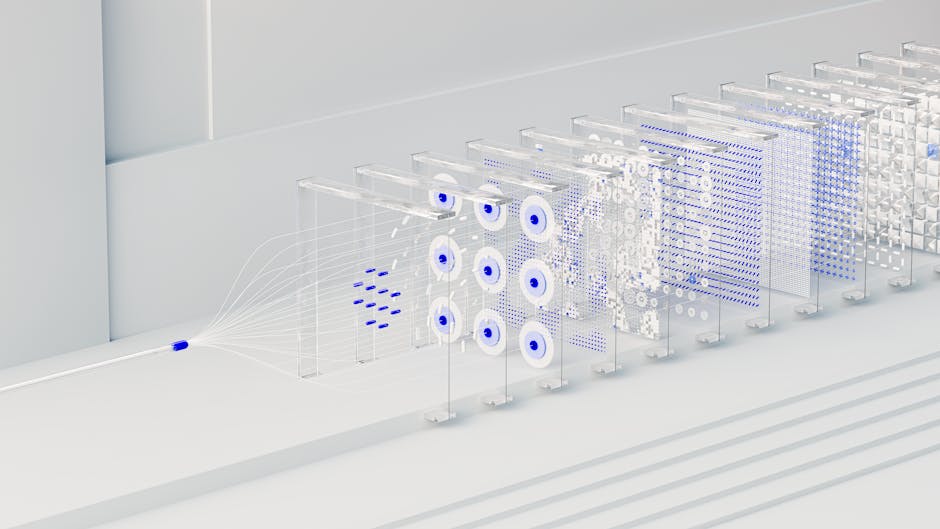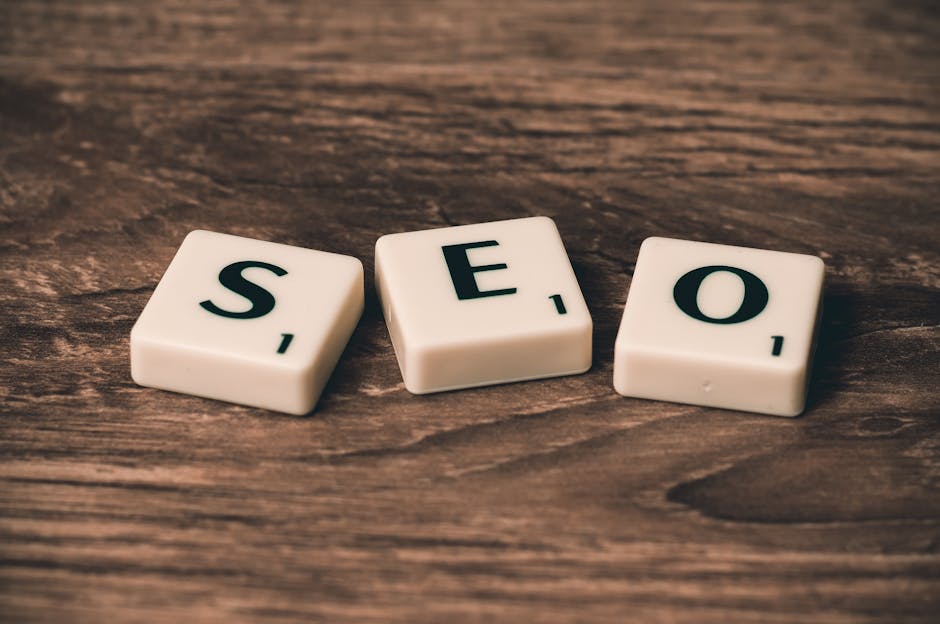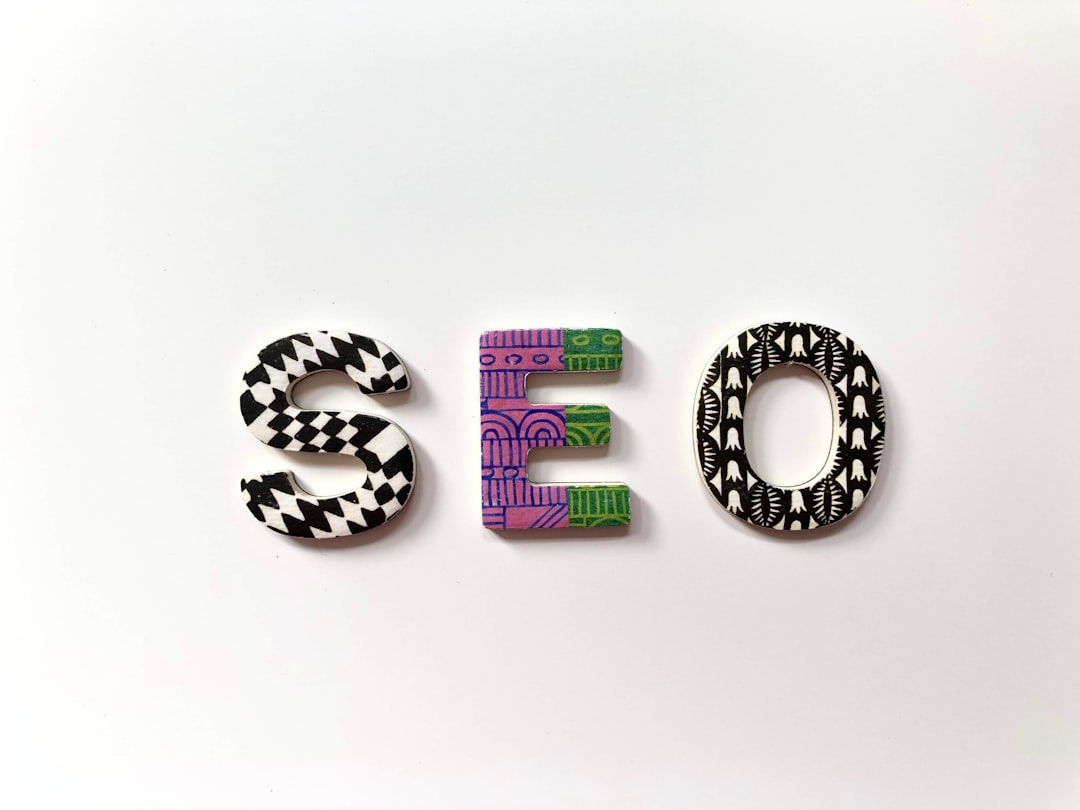Why AI-Powered Website Optimization is a Game-Changer
AI for website optimization is changing how businesses improve their online presence. Wondering what it is and how it helps? Here’s a quick rundown:
- Improves search rankings by using data analysis to optimize keywords.
- Improves user experience with personalized content.
- Speeds up processes like content creation and technical SEO fixes.
- Adapts to user behaviors to continually improve website performance.
Artificial Intelligence (AI) is revolutionizing the way websites are optimized, especially for SEO. Through AI, machine learning (ML), and natural language processing (NLP), businesses can now make data-driven decisions to improve their websites. These advancements not only improve search engine rankings but also lift the user experience by predicting and adapting to user behaviors.
Hi! I’m Danielle Birriel, founder of D&D SEO Services. With over a decade in SEO, I’ve helped local businesses harness the power of AI for website optimization to boost their online visibility and attract more local customers. My approach combines cutting-edge tools with personalized strategies to meet your unique business needs.
What is AI-Powered Website Optimization?
AI-powered website optimization uses artificial intelligence technologies to improve various aspects of your website. This includes machine learning, natural language processing, and AI algorithms that analyze data and predict user behavior. By leveraging these technologies, you can automate many optimization processes, making your site more efficient and user-friendly.
AI Technologies
AI technologies are the backbone of modern website optimization. They help in analyzing vast amounts of data quickly and accurately. For instance, AI can identify patterns in user behavior, allowing you to predict what users might search for next or which content they will find most engaging.
Machine Learning
Machine learning (ML) is a branch of AI that enables systems to learn from data and make decisions with minimal human intervention. ML can improve your page performance by analyzing user interactions and adjusting elements like layout and content recommendations in real-time. This ensures a more personalized and engaging user experience.
Natural Language Processing
Natural Language Processing (NLP) allows computers to understand, interpret, and generate human language. This is crucial for creating content that resonates with your audience. NLP can analyze search queries to determine user intent, helping you craft content that answers users’ questions effectively. For example, tools like GPT-3 use NLP to generate high-quality content that can improve your site’s SEO performance.
AI Algorithms
AI algorithms analyze user behavior, site structure, and content to optimize your website. These algorithms can predict future search trends and adjust your SEO strategy accordingly. For example, if many users who search for “AI for website optimization” also search for “machine learning for SEO,” the algorithm might suggest creating content around that topic.
Data Analysis
Data analysis is at the heart of AI-powered website optimization. AI tools can sift through vast amounts of data to uncover hidden growth opportunities. They track market trends and consumer behavior patterns quickly, providing immediate insights. This allows you to create relevant content before your competition does.
User Behavior
Understanding user behavior is essential for optimizing your website. AI search engines analyze user interactions to identify which results are most relevant. They look at factors like which results users click on, how much time they spend on each page, and whether they return to make another search.
Automation
Automation is one of the significant benefits of AI-powered website optimization. AI tools can automate tedious tasks like keyword research, site audits, and content optimization. This frees up your time to focus on strategy. For example, AI-powered content optimization tools like MarketMuse and Clearscope use machine learning algorithms to analyze your content and suggest improvements for higher search rankings.
By leveraging these advanced AI technologies, you can transform your website’s SEO, making it more efficient, user-friendly, and competitive.
In the next section, we’ll explore the many benefits of AI for website optimization and how it can help your business grow.
Benefits of AI for Website Optimization
Efficiency
AI tools automate tasks that used to take hours or even days. For example, AI-driven content optimization can analyze and suggest improvements in minutes. This frees up your time to focus on strategy and creative work.
User-Centric Design
AI helps you create a website that meets your users’ needs. By analyzing user behavior, AI can suggest layout changes and content that will keep visitors engaged. This leads to higher satisfaction and retention rates.
Search Accuracy
AI improves search accuracy by understanding user intent better. For instance, Google’s RankBrain uses machine learning to deliver more relevant search results. This means your website is more likely to appear in front of the right audience.
Content Creation
AI can generate high-quality content quickly. Tools like Jasper and HubSpot AI Tools can help you brainstorm, draft, and optimize content. This makes it easier to keep your website updated with fresh, relevant content.
Personalization
AI allows for personalized user experiences. By analyzing user data, AI can recommend products, content, or services custom to individual preferences. This increases engagement and conversion rates.
Data Analysis
AI excels at analyzing large amounts of data. It can identify patterns and trends that are not obvious to humans. This helps you make informed decisions about your website’s design, content, and marketing strategies.
Security
AI can improve your website’s security by detecting and mitigating threats. Machine learning algorithms can identify unusual patterns that may indicate a security breach, allowing you to act quickly.
Customer Service
AI-powered chatbots can provide instant customer support. They can answer common questions, guide users through processes, and even handle transactions. This improves user experience and frees up human resources for more complex tasks.
Accessibility
AI can make your website more accessible. Tools like natural language processing (NLP) can convert text to speech, making your content available to a wider audience, including those with disabilities.
By leveraging AI for website optimization, you can make your site more efficient, user-friendly, and secure. This not only improves your SEO but also improves the overall user experience.
In the next section, we’ll discuss how to implement AI for website optimization, covering best practices and strategies.
How to Implement AI for Website Optimization
Implementing AI for website optimization can transform your site’s performance and user experience. Here are some practical tips to get started:
Web Design Best Practices
AI tools can streamline web design by analyzing user behavior and preferences. They suggest layouts and design elements that engage users. For instance, AI can recommend color schemes that resonate with your audience or layouts that improve readability.
Intuitive User Experience
Creating an intuitive user experience is essential. AI can analyze how users interact with your site and suggest improvements. For example, if users often leave a page quickly, AI can identify the issue and recommend changes to keep them engaged.
Content Optimization
Content is king, but it needs to be optimized. AI can help you create high-quality, relevant content by analyzing what your audience is searching for. Tools like Grammarly and Hemingway Editor can refine your content for better readability and SEO performance.
Meta Titles, Descriptions, and URLs
Optimizing meta titles, descriptions, and URLs is crucial for SEO. AI tools can automatically generate these elements based on your content. For example, Wix AI optimizes meta tags and alt text, ensuring your site is search engine-friendly.
Web Performance Strategies
Fast load times are critical. AI can optimize content delivery and minimize data transfer, reducing waiting times. Predictive page prerendering, for example, anticipates which pages a user will visit next and loads them in advance, improving speed.
Fast Load Times
Slow-loading pages drive users away. AI can analyze and streamline your site structure to minimize redundant data transfer. This not only improves user experience but also boosts your Google rankings.
Smooth Interactions
AI can ensure smooth interactions on your site. For example, intelligent chatbots can provide instant support, while predictive search can help users find what they need quickly. These features make your site more user-friendly and engaging.
By implementing these AI-driven strategies, you can significantly improve your website’s performance and user experience. In the next section, we’ll explore the top AI tools for website optimization.
Top AI Tools for Website Optimization
AI tools can transform your website’s SEO and overall performance. Here are some of the top AI tools for website optimization:
GREMI
Keyword Research: GREMI uses AI to turn your product or service descriptions into a list of search keyword recommendations. This helps you target the right audience without much effort.
Content Generation: The tool can generate content to help you market your business alongside your keyword recommendations. This ensures your content is relevant and optimized.
Progress Tracking: GREMI’s AI-powered tracking software benchmarks your current search engine position and tracks your growth over time. This makes it easy to see how your SEO efforts are paying off.
SE Ranking
On-page SEO: SE Ranking offers a comprehensive on-page SEO checker that analyzes your website and provides optimization suggestions.
Competitive Research: This tool allows you to research your competitors’ keywords and strategies, helping you stay ahead in the game.
AI Writer: SE Ranking features an AI writer that can generate topics, outlines, and even full drafts of articles. It uses your preferred tone, making content creation faster and easier.
SEOpital
AI Article Writer: SEOpital’s AI-driven article writer helps create high-quality, optimized content quickly.
Real-Time Data: The tool integrates real-time web data to ensure your content remains relevant and up-to-date.
Writing Style Cloner: SEOpital can clone writing styles, allowing you to maintain a consistent tone across all your content.
Semrush
Site Audits: Semrush conducts comprehensive site audits to identify and fix issues that may affect your SEO performance.
Keyword Research: The tool provides extensive keyword research capabilities, helping you find the best terms to target.
Content Optimization: Semrush offers a content optimization tool that helps you create SEO-friendly content. It suggests semantically related keywords and optimization opportunities, saving you time and effort.
Frase.io
Content Briefs: Frase.io automatically generates content briefs with key points and topics to cover, streamlining the content creation process.
SERP Research: The tool conducts SERP research to help you understand what top-ranking pages are doing right, allowing you to optimize your content accordingly.
Content Scoring: Frase.io provides content scoring to evaluate how well your content is optimized for your target keywords.
By leveraging these AI tools, you can improve your website’s SEO, streamline content creation, and track your progress effectively. In the next section, we’ll dive into how AI can optimize your website’s SEO.
AI for SEO Optimization
AI can transform your website’s SEO, making it more efficient and effective. Let’s explore how AI tools can help with keyword research, content optimization, technical SEO, website performance, and rankings.
AI SEO Tools
AI SEO tools automate many tasks that used to take hours. They analyze data and provide insights that help you make better decisions. Tools like MarketMuse and Clearscope use AI to optimize your content for search engines, ensuring it ranks higher.
Keyword Research
Finding the right keywords is crucial for SEO. AI tools like Google’s Keyword Planner and Moz’s Keyword Explorer make this easier. They analyze search data to find keywords that your audience is searching for. This helps you create content that meets their needs.
Content Optimization
Creating high-quality content is just the first step. AI tools like Grammarly and Hemingway Editor help refine your content. They check for readability and SEO performance, making sure your content is engaging and optimized for search engines.
Technical SEO
Technical SEO involves optimizing your website’s backend. AI tools can help identify and fix issues like broken links and slow load times. This improves your site’s performance and user experience, which are key ranking factors.
Website Performance
AI can also optimize your website’s performance. Tools use predictive analytics and machine learning to streamline your site structure and minimize data transfer. This reduces load times, keeping visitors engaged and improving your search rankings.
Rankings
AI tools analyze your website’s performance and suggest improvements. They track your rankings and provide insights into what’s working and what’s not. This helps you stay ahead of the competition and continuously improve your SEO strategy.
By leveraging AI for website optimization, you can boost your online presence, improve user experience, and uncover new growth opportunities. In the next section, we’ll discuss best practices for AI-driven SEO.
Best Practices for AI-Driven SEO
Search Intent
Understanding search intent is crucial. When users search for something, they have a specific goal in mind. AI tools like Semrush can help you identify the intent behind search queries. For example, if people are looking for “best art galleries in Toronto,” they want a list of galleries, not a sales pitch. Align your content to match this intent.
E-E-A-T (Experience, Expertise, Authority, Trust)
Google values Experience, Expertise, Authority, and Trust (E-E-A-T). To rank well, your site needs to demonstrate these qualities. Here’s how:
- Experience: Share personal stories or case studies.
- Expertise: Include author bios and credentials.
- Authority: Get mentioned or quoted on reputable sites.
- Trust: Display awards, recognitions, and user reviews.
Tip: If you use AI-generated content, make sure it aligns with E-E-A-T by adding expert opinions and personal insights.
Internal Links
Internal links help Google understand the structure of your website. They connect related content, making it easier for users to steer. AI tools can suggest optimal internal linking strategies. For example, linking a blog post about “Toronto art galleries” to a related post about “art events in Toronto” can improve user experience and SEO.
External Links
External links to credible sources add value and context to your content. They show that your information is well-researched and trustworthy. However, always fact-check these links. AI tools can help identify reliable sources, but human oversight is essential to ensure accuracy.
Fact-Checking
AI-generated content often includes statements that need verification. Always fact-check your content before publishing. Tools like Grammarly can assist, but human editors should review for accuracy and context.
User Needs
Focus on what your users need. Use AI to analyze user behavior and preferences. Tailor your content to meet these needs. For instance, if users frequently ask about “art gallery hours in Toronto,” make sure this information is easy to find.
Google Guidelines
Follow Google’s guidelines for SEO. Google prioritizes high-quality, relevant content. Avoid black hat SEO tactics like keyword stuffing or plagiarism. AI can help you stay compliant by suggesting best practices and flagging potential issues.
By adhering to these best practices for AI-driven SEO, you’ll improve your site’s performance, improve user satisfaction, and achieve better search rankings.
Next, we’ll address frequently asked questions about AI for website optimization.
Frequently Asked Questions about AI for Website Optimization
How to optimize a website with AI?
Web design: AI can help create intuitive and user-friendly web designs by analyzing user behavior. Tools like AI-powered website builders can suggest layouts and features that improve user experience.
Content optimization: AI tools can analyze your content for readability, keyword usage, and relevance. They can suggest improvements and even generate content that aligns with your SEO goals.
Performance strategies: AI can monitor your site’s performance, identifying issues like slow load times and broken links. It can also recommend fixes to ensure your site runs smoothly.
Can AI make my website better?
Content creation: AI tools can generate high-quality content, from blog posts to product descriptions. This saves time and ensures that your content is optimized for search engines.
Personalization: AI can analyze user data to deliver personalized content and recommendations. This improves user experience and increases engagement.
Optimization: AI can continuously monitor and optimize various aspects of your site, from SEO to user interface, ensuring it remains competitive.
Data analysis: AI can process large amounts of data to provide insights into user behavior, traffic patterns, and more. This helps you make informed decisions to improve your site.
Can AI do SEO optimization?
SEO tools: AI-powered SEO tools can handle tasks like keyword research, backlink analysis, and site audits. They provide actionable insights to improve your rankings.
On-page optimization: AI can optimize meta titles, descriptions, and content structure to make your site more search engine-friendly. It can also ensure your content aligns with user intent.
A/B testing: AI can automate A/B testing to determine which versions of your content or design perform better. This helps you make data-driven decisions to improve your site.
By leveraging AI for website optimization, you can improve your site’s performance, user experience, and search engine rankings. This leads to more traffic, higher engagement, and better conversions.
Conclusion
Using AI for website optimization is no longer a luxury—it’s a necessity. As AI technologies continue to evolve, they offer unparalleled opportunities to improve your SEO, improve user experience, and drive business growth.
At D&D SEO Services, we specialize in leveraging AI to help local businesses optimize their online presence. Our personalized strategies are designed to meet your unique needs, ensuring your website not only attracts visitors but also converts them into customers.
Online visibility is crucial for any business. With AI, we can optimize every aspect of your website, from content creation to technical SEO, making sure you stand out in search engine results. This means more traffic, higher engagement, and ultimately, more conversions.
We understand that every business is different. That’s why we focus on creating personalized strategies that align with your specific goals. Whether you’re a small local business or a larger enterprise, our AI-driven solutions can help you achieve sustainable growth.
Ready to transform your website’s SEO with AI? Contact D&D SEO Services today to learn how we can help you achieve your goals.
By embracing AI for website optimization, you’re not just keeping up with the competition—you’re staying ahead. Let’s work together to make your website the best it can be.








